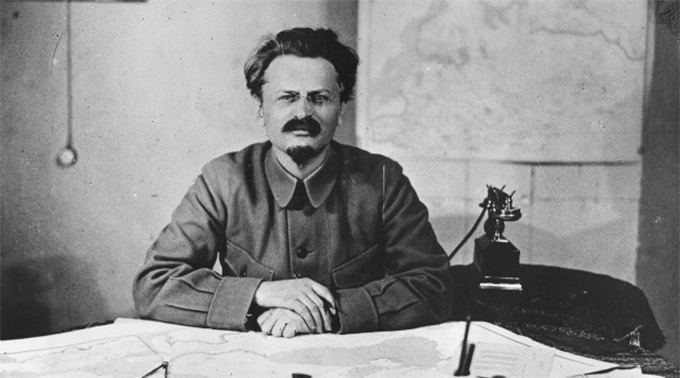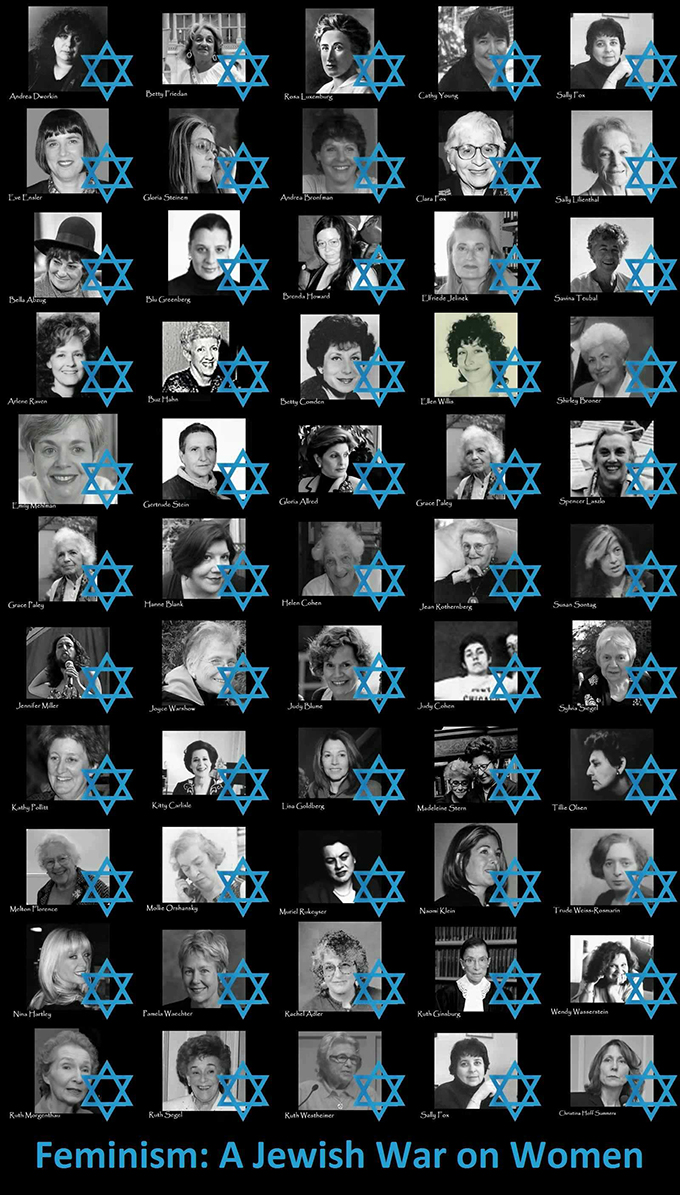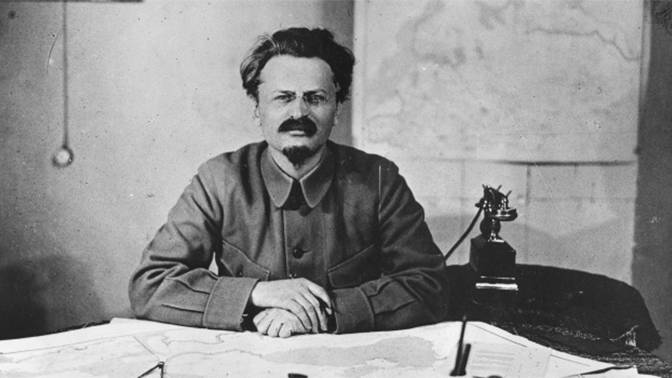The Damaging Effects Of Jewish Intellectualism And Activism On Western Culture
Source: returnofkings.com

In the past couple of years I began to wonder about the fact that Jews are firmly in the middle of leftist movements centered around socialism, communism, and feminism. The Culture Of Critique by Kevin MacDonald answered why they are so heavily invested in leftist causes and how they have damaged traditional Christian ideals by treating America as a cultural laboratory to further their own group interests above those of gentiles (non-Jews).

Up to recently, Jews did not have a homeland, meaning they had—and still have—to live in countries where they’re minorities. Therefore they would historically favor societies that were open, multicultural, pro-immigration, and left-leaning so that they would not be persecuted by the host nation or be barred from attaining higher social and economic status.
Jews benefit from open, individualistic societies in which barriers to upward mobility are removed, in which people are viewed as individuals rather than as members of groups, in which intellectual discourse is not prescribed by institutions like the Catholic Church that are not dominated by Jews, and in which mechanisms of altruistic punishment may be exploited to divide the European majority.
To accomplish such a society, Jewish intellectuals moved mountains to promote human equality and the idea of racial equality (the inventor of the word ‘racist’ was Russian Jewish communist Leon Trotsky, born Lev Bronshtein). While pushing the notion of equality, Jews were hyper-aware of their own unique race and would exclude themselves from many of the prescriptions they offered to their host cultures. They made sure to help their “tribe” before all others.
Below are the main arguments and highlights of The Culture Of Critique:
“Race is a myth”
Famed Jewish anthropologist Franz Boas was instrumental in pushing the idea of nurture and culture over that of nature. We now speak of “cultural” effects upon nations instead of more genetically determined factors like race.
An important technique of the Boasian school was to cast doubt on general theories of human evolution , such as those implying developmental sequences, by emphasizing the vast diversity and chaotic minutiae of human behavior, as well as the relativism of standards of cultural evaluation.
[…]
By 1926 every major department of anthropology was headed by Boas’s students, the majority of whom were Jewish.
[…]
Ashley Montagu was another influential student of Boas. Montagu, whose original name was Israel Ehrenberg, was a highly visible crusader in the battle against the idea of racial differences in mental capacities. He was also highly conscious of being Jewish, stating on one occasion that “if you are brought up a Jew, you know that all non-Jews are anti-Semitic. . . . I think it is a good working hypothesis”. Montagu asserted that race is a socially constructed myth.
Freudian psychoanalysis as a gentile subversive movement
The book proposes that Sigmund Freud, a Jew, pushed psychoanalysis to break down traditional pair bonding in gentiles.
Many early proponents viewed psychoanalysis as a redemptive messianic movement that would end anti-Semitism by freeing the world of neuroses produced by sexually repressive Western civilization.
[…]
Freud’s theory of anti-Semitism in Moses and Monotheism contains several assertions that anti-Semitism is fundamentally a pathological gentile reaction to Jewish ethical superiority.
[…]
Freud managed to diagnose Western culture as essentially neurotic while apparently, on the basis of the argument in Moses and Monotheism, holding the view that Judaism represents the epitome of mental health and moral and intellectual superiority.
[…]
…when [Western] institutions were subjected to the radical critique presented by psychoanalysis, they came to be seen as engendering neurosis, and Western society itself was viewed as pathogenic. Freud’s writings on this issue are replete with assertions on the need for greater sexual freedom to overcome debilitating neurosis. As we shall see, later psychoanalytic critiques of gentile culture pointed to the repression of sexuality as leading to anti-Semitism and a host of other modern ills.
[…]
The psychoanalysts who emigrated from Europe to the United States during the Nazi era expected to make psychoanalysis “into the ultimate weapon against fascism, anti-Semitism, and every other antiliberal bias.”
Frankfurt school
The Frankfurt school was a research institute set up in Germany during the 1920’s. They were instrumental in developing an intellectual base for cultural Marxism under the “critical theory” framework.
At a deep level the work of the Frankfurt School is addressed to altering Western societies in an attempt to make them resistant to anti-Semitism by pathologizing gentile group affiliations.
[…]
…entire thrust of the Frankfurt School’s view of science rejects the idea that science should attempt to understand reality in favor of the ideology that science ought to serve moral (i.e., political) interests.
[…]
The end of anti-Semitism is thus viewed as a precondition for the development of a utopian society and the liberation of humanity— perhaps the closest that the Frankfurt School ever came to defining utopia. The envisioned utopian society is one in which Judaism can continue as a cohesive group but in which cohesive, nationalistic, corporate gentile groups based on conformity to group norms have been abolished as manifestations of psychopathology.
[…]
In the 1970s, the Frankfurt School intellectuals continued to draw the fire of German conservatives who characterized them as the “intellectual foster-parents of terrorists” and as fomenters of “cultural revolution to destroy the Christian West”
[…]
Jewish interests are also served by the Frankfurt School ideology that gentile concerns about losing social status and being eclipsed economically , socially, and demographically by other groups are an indication of psychopathology. As an exceptionally upwardly mobile group, this ideology serves Jewish interests by defusing gentile concerns about their downward mobility.
Jewish intellectual strategies to change culture
Judaism, because of its position as a minority group strategy committed to its own worldview, has tended to adopt ideologies in which the institutions and ideologies of the surrounding society are viewed negatively.
[…]
…an important goal of Jewish intellectual effort may be understood as attempting to undermine cohesive gentile group strategies while continuing to engage in their own highly cohesive group strategy.
[…]
…one of the themes of post-Enlightenment Judaism has been the rapid upward mobility of Jews and attempts by gentile power structures to limit Jewish access to power and social status. Given this rather conspicuous reality, practical reasons of economic and political self-interest would result in Jews being attracted to movements that criticized the gentile power structure or even advocated overthrowing it entirely.
[…]
Another practical goal of Jewish political and intellectual movements has been to combat anti-Semitism. For example, Jewish attraction to socialism in many countries in the 1930s was motivated partly by communist opposition to fascism and anti-Semitism. The general association between anti-Semitism and conservative political views has often been advanced as an explanation for Jewish involvement with the left, including the leftist tendencies of many wealthy Jews.
[…]
In the absence of a clearly perceived conflict with Jewish interests, it remains possible that different political choices among ethnic Jews are only differences in tactics for how best to achieve Jewish interests.
[…]
Silberman notes “American Jews are committed to cultural tolerance because of their belief— one firmly rooted in history— that Jews are safe only in a society acceptant of a wide range of attitudes and behaviors, as well as a diversity of religious and ethnic groups. It is this belief, for example, not approval of homosexuality, that leads an overwhelming majority of American Jews to endorse ‘gay rights’ and to take a liberal stance on most other so-called ‘social’ issues.”
[…]
Institutions that promote group ties among gentiles (such as nationalism and traditional gentile religious associations) are actively opposed and subverted, while the structural integrity of Jewish separatism is maintained. A consistent thread of radical theorizing since Marx has been a fear that nationalism could serve as a social cement that would result in a compromise between the social classes and result in a highly unified social order based on hierarchical but harmonious relationships between existing social classes.
[…]
When an experiment in ideology and political structure fails, another experiment is launched. Since the Enlightenment, Judaism has not been a unified, monolithic movement.
[…]
In the promised utopian societies of the future, the category of Jew-gentile would be of no theoretical importance , but Jews could continue to identify as Jews and there could be continuation of Jewish group identity while at the same time a principle source of gentile identity— religion and its concomitant supports for high-investment parenting— would be conceptualized as an infantile aberration.
[...]
Read the rest: returnofkings.com






















